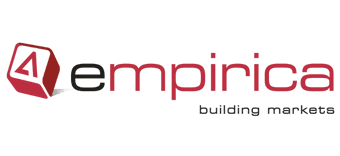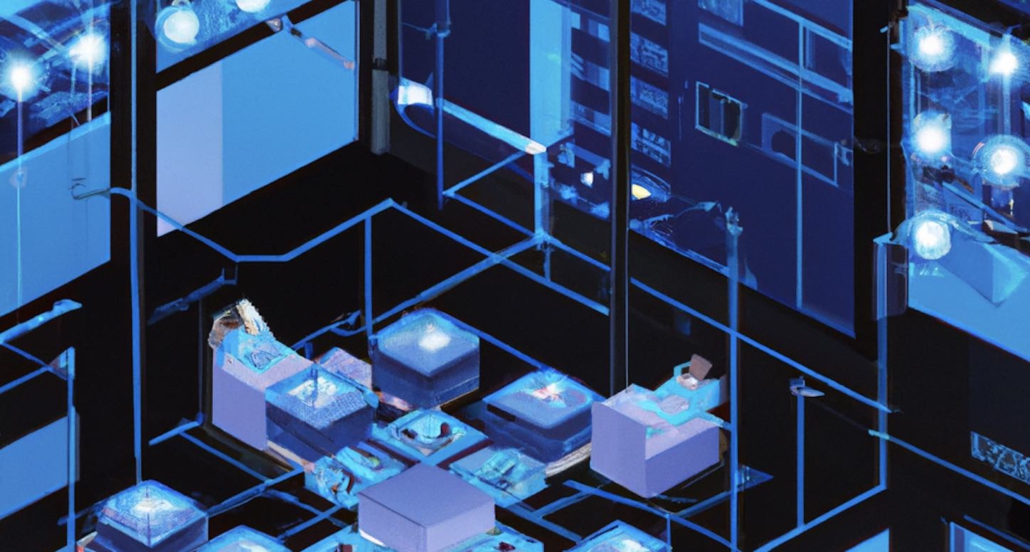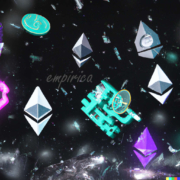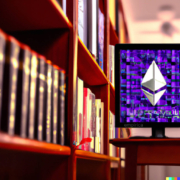Blockchain healthcare companies with native tokens – most promising projects to keep an eye on
The Digitization sector is the smallest sector according to DACS, a digital asset classification system by CoinDesk Indices, representing 0.1% of the digital asset market (out of the TOP 500 analyzed assets).
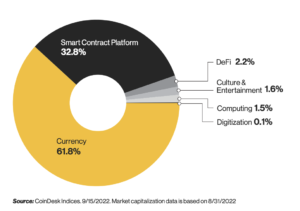
Although it is currently the smallest sector in DACS, it has some great use cases, including helping brands establish digital identity, accepting crypto payments directly, and allowing patients to digitize their medical records without a loss of privacy.
In this article, we would like to focus on healthcare projects, representing 12,9% out of all tokens in the the Digitization sector.
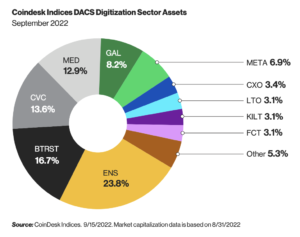
Why do healthcare providers look towards blockchain?
Blockchain technology has the potential to revolutionize the healthcare industry by improving the efficiency, security, and accessibility of healthcare data. Here are some specific ways in which blockchain can help the healthcare sector:
- Data sharing: Blockchain technology can be used to share and securely access patient data across different healthcare providers and organizations, improving the continuity of care and reducing administrative costs.
- Identity management: Blockchain can be used to create digital identities for patients and healthcare providers, which can be used to verify identity and access to sensitive medical data (patient medical records).
- Supply chain management: blockchain can be used to trace and authenticate the origin of medical products, such as drugs and medical devices, which can help to prevent counterfeit and substandard products from entering the market.
- EMR management: blockchain-based Electronic Medical Records (EMR) systems allow patients to securely store and control access to their own health data, which can improve the quality and continuity of care.
- Clinical trials and research: ledger technology can be used to securely and transparently store data from clinical trials and research studies, which can help to improve the integrity and accuracy of the research.
- Insurance claims processing: blockchain technologies can help automate the claims process (through smart contracts), reduce fraud and administrative costs, and improve the speed and accuracy of payments.
Overall, the use of blockchain in healthcare has the potential to improve patient health outcomes, reduce costs, and increase trust and transparency in the healthcare system.
What is the role of native tokens in healthcare platforms?
Blockchain healthcare providers release their own utility tokens, which serve as a means of exchanging value on the medical platforms they are building. They allow users to access and pay for medical services as well as can be used by medical companies to reward their users (for contributing data or participating in governance or incentivizing the development and maintenance of the platform).
What healthcare blockchain companies should one keep an eye on in 2023?
Here are some selected healthcare companies we are keen to monitor in 2023.
Patientory (PTOY token)

Patientory wants to democratize the world’s health and medical data by empowering users with ownership and actionable insights from their health data, incentivizing them to take control of their health outcomes. Patientory is a HIPAA-compliant platform (Health Insurance Portability and Accountability Act of 1996), challenging the standards of health data ownership today without compromising privacy and safety.
Patientory uses blockchain architecture to decentralize health data, making it more secure and less susceptible to data breaches. Their solutions solves the healthcare data access and sharing problem by giving identity and ownership of personal healthcare information back to the patient. The information is currently stored in the largest healthcare information exchange network, so called PTOYMatrix.
The platform gives users a fuller view of their overall health, aggregating all of a patient’s health data, from clinical records to wearables. Their enterprise platform, Neith, allows healthcare stakeholders to create reports and predictive analytics around population health.
The company is based in the USA.
What is a PTOY token?
Their native token, PTOY, was ranked #2471 on CoinGecko, and #1790 on CoinMarketCap as of January 2023. The token provides unit economics for health data auditability and access to the PTOYMatrix which aims to ensure access to healthcare information is secure and encrypted.
MediBloc (MED token)

MediBloc is developing a patient-centered health data ecosystem based on their own blockchain Panacea. The solution prioritizes both individual privacy and the reliability of health data. Similarly to Patientory, its a decentralized, tamper-proof blockchain-based data ecosystem, which allows users have sovereignty over their own data and use their health information according to our own needs. MediBloc allows the integration of different electronic medical record (EMR) systems. The team behind the project guarantees that the platform is fully compliant with HIPAA.
What is a MED token?
MED was ranked #277 on CoinGecko, and #193 on CoinMarketCap as of January 2023.
The token is a cryptocurrency that can create an economic ecosystem and induce participation in the platform. Individuals who contribute to the MediBloc platform, including both patients and healthcare providers, are rewarded with incentives in the form of MED tokens. These incentives are based on the level of contribution. Additionally, in the future, MED tokens may be used as a means of payment for various healthcare expenses that utilize blockchain technology.
Solve.Care (SOLVE token)

Solve.care is a healthcare platform that utilizes blockchain technology to improve the coordination and administration of healthcare services. Some of its unique selling points include care coordination (among different healthcare providers, making it easier for patients to receive the care they need), automation of administrative processes (by utilizing smart contracts) like claims processing and appointment scheduling. Solve.care allows patients to have more control over their health data and the care they receive, giving them the ability to customize their care and treatment plans. They aim to improve access to care, especially in remote and under-served areas, by providing a platform where patients can access healthcare services remotely, reducing the need for in-person visits.
Their Global Telehealth Exchange is a HIPAA-compliant telemedicine solution that exceeds international privacy and security requirements to ensure that patient data is protected.
What is a SOLVE token?
SOLVE was ranked #813 on CoinGecko, and #675 on CoinMarketCap as of January 2023.
Solve.care uses its own cryptocurrency to incentivize and reward participants in the platform, including patients, healthcare providers, and insurers.
Medicalchain (MTN token)

Medicalchain is a HIPAA-compliant blockchain-based platform for electronic health records (EHRs) that aims to improve the sharing and management of medical data. Medicalchain utilizes blockchain technology to enable secure sharing of medical data among authorized healthcare providers, allowing for more efficient and accurate care. The platform gives patients control over their own medical data, allowing them to share it with healthcare providers of their choice.
It allows for the integration of different electronic medical record (EMR) systems, making it possible for patients and healthcare providers to share and access medical data more easily.
Medicalchain offers telemedicine services, allowing patients to consult with healthcare providers remotely, reducing the need for in-person visits.
Medicalchain aims to use AI and machine learning to improve patient outcomes by providing healthcare providers with real-time analysis of medical data.
What is an MTN token?
MTN was ranked #2499 on CoinGecko, and #1635 on CoinMarketCap as of January 2023.
Medicalchain uses its own cryptocurrency, called MedToken, to incentivize and reward participants in the platform, including patients, healthcare providers, and researchers.
Who will win the battle in the healthcare sector?
It is not possible today to predict who will be a winner in the blockchain healthcare sector, as it is a rapidly evolving field with more and more companies building their future-ready healthcare projects. It is likely that the blockchain healthcare sector will continue to be a highly competitive and dynamic space.
